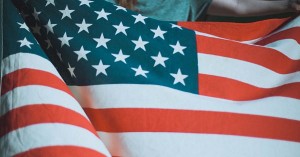 August 18, 1787 (Click to read Madison’s notes)
August 18, 1787 (Click to read Madison’s notes)
Summary
The delegates continued to discuss the enumeration of powers of Congress and formed a committee to make recommendations about new powers to include.
Influences on the Delegates
Although some founders wanted a very limited national government, Madison and Pinckney wanted an expansion of federal powers. Look at what they wanted Congress to oversee.
In Convention, — Mr. MADISON submitted, in order to be referred to the Committee of Detail, the following powers, as proper to be added to those of the General Legislature:
“To dispose of the unappropriated lands of the United States.
“To institute temporary governments for new States arising therein.
“To regulate affairs with the Indians, as well within as without the limits of the United States.
“To exercise exclusively legislative authority at the seat of the General Government, and over a district around the same not exceeding — square miles; the consent of the Legislature of the State or States, comprising the same, being first obtained.
“To grant charters of corporation in cases where the public good may require them, and the authority of a single State may be incompetent.
“To secure to literary authors their copyrights for a limited time.
“To establish a university.
“To encourage by premiums and provisions the advancement of useful knowledge and discoveries.
“To authorize the Executive to procure, and hold for the use of the United States, landed property for the erection of forts, magazines, and other necessary buildings.”
These propositions were referred to the Committee of Detail which had prepared the Report; and at the same time the following, which were moved by Mr. PINCKNEY, — in both cases unanimously:
“To fix and permanently establish the seat of government of the United States, in which they shall possess the exclusive right of soil and jurisdiction.
“To establish seminaries for the promotion of literature and the arts and sciences.
“To grant charters of incorporation.
“To grant patents for useful inventions.
“To secure to authors exclusive rights for a certain time.
“To establish public institutions, rewards, and immunities for the promotion of agriculture, commerce, trades, and manufactures.
“That funds which shall be appropriated for the payment of public creditors, shall not during the time of such appropriation, be diverted or applied to any other purpose, and that the Committee prepare a clause or clauses for restraining the Legislature of the United States from establishing a perpetual revenue.
“To secure the payment of the public debt.
“To secure all creditors under the new Constitution from a violation of the public faith when pledged by the authority of the Legislature.
“To grant letters of marque and reprisal.
“To regulate stages on the post-roads.”
Great Britain was a positive influence for Mason:
Mr. MASON was much attached to the principle, but was afraid such a fetter might be dangerous in time of war. He suggested the necessity of preventing the danger of perpetual revenue, which must of necessity subvert the liberty of any country. If it be objected to on the principle of Mr. RUTLEDGE’S motion, that public credit may require perpetual provisions, that case might be excepted; it being declared that in other cases no taxes should be laid for a longer term than — years. He considered the caution observed in Great Britain on this point, as the palladium of public liberty.
1787 Constitutional Convention Series
To read my series examining the proceedings of the Constitution Convention, click here. In this series, I am writing about any obvious influences on the development of the Constitution which were mentioned by the delegates to the Convention. Specifically, I am testing David Barton’s claim that “every clause” of the Constitution is based on biblical principles. Thus far, I have found nothing supporting the claim. However, stay tuned, the series will run until mid-September.
Constitutional Convention Series (click the link)
To follow on social media, click the following links:
Facebook (blog posts and news)
Facebook (Getting Jefferson Right – history news)
Twitter